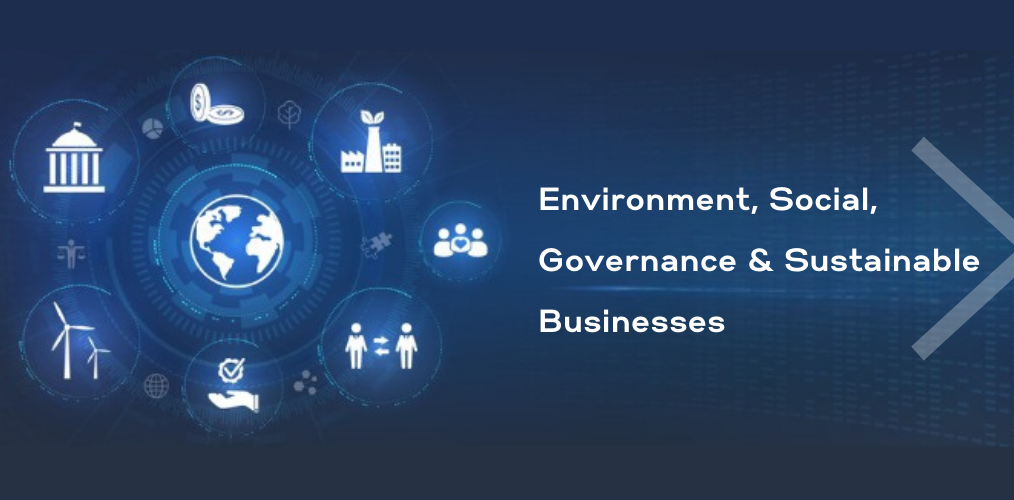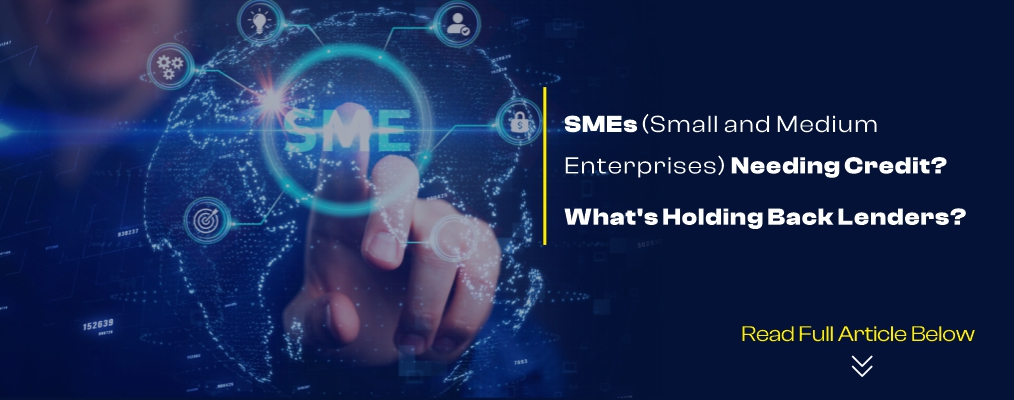ESG stands for Environment, Social, Governance, primarily comprises the three vast areas for which the term “socially responsible investors” is conventionally used. Investors who won’t greedily and selfishly compute the potential profitability and give equal importance to values and environmental concerns while making investments are included in this category.
For example, under the classification, ‘environmental’ are issues like pollution or the amount of toxic waste an industry produces and the factors associated with climate change. Socially responsible investment can be apprehended as one that supports sustainable investment, mission-related investment, and impact-based investment. Investors who come under the category of ESG investors are more of the activist type who tend to participate in shareholder meetings and contribute to amending company policies and practices.
Well, if you ask, ‘Why must businesses must focus on the true essence of ESG to run a sustainable business?” Then, we would like to elaborate on these points as –
- Sustainable approaches lead to more customers, optimize resource availability, lower energy and water usage, and, as a result, lower production costs.
- Sustainable approaches promote social credibility, retain talent, increase job satisfaction, and strengthen community ties.
- Government backing, incentives, overcoming increasing competitive pressure, and better investor relations, for example, in terms of better financing conditions or cheaper capital costs, are all possible outcomes of environmental sustainability.
ESG Criteria
Each of the three variables of ESG investments – environmental, social, and governance (corporate) – has a set of requirements that can be utilized by socially conscious investors or organizations looking to take a more ESG-friendly approach to their operations. Though many ESG criteria are subjective, efforts are underway on a number of fronts to provide more objective, trustworthy assessments of a company’s performance in terms of ESG policies and procedures.
ESG – Environmental
The term “social criteria” refers to a wide range of potential difficulties. There are many different social aspects to Environment Social Governance, but they all revolve around social relationships. Many socially responsible investors consider a company’s relationship with its employees to be one of its most important ties.
Here’s a quick glance at some of the factors to consider when assessing how a firm manages its social relationships:
- Is employee compensation competitive, or even generous, when compared to similar jobs or positions across the sector? What types of retirement funds are accessible to employees? Does the corporation contribute to the retirement plans of its employees?
- What benefits or perks do employees receive in addition to their basic income or salaries? If you do things like providing a free, very luxurious buffet lunch for all employees every coming Friday – or avail other types of perks that aren’t common at all workplaces, such as an on-site health club – it can make a major impact on the evaluation of your company with Environmental Social Governance – conscious investors.
- Corporate policies on multiculturalism, inclusiveness, and sexual harassment prevention are regularly discussed.
- Staff education and training programs; for instance, does your firm provide financial assistance for ongoing or higher education and/or flexible work schedules for employees seeking further education; what prospects do employees have at the company to be trained in new employable skills that will qualify them for higher-paying roles?
- Is there a prominent level of employee involvement with management? How much say do employees have when it comes to defining operational processes in their departments?
- The percentage of employees who leave.
- What is the mission statement of the company? Is it relevant to society and profitable to society?
- How well do you handle your customer relationships? Is there any interaction between the company and its customers on social media? What is the customer service department’s level of responsiveness and efficiency? Is there a history of customer protection issues, such as product recalls, with the company?
- Is there a public or political stance taken by the corporation on human rights issues? Is money donated to charitable causes?
ESG – Governance
In the context of Environment Social Governance, governance refers to how a firm is run by officials in the executive suites on the top floors. How well do the company’s senior management and board of directors look out for the interests of the company’s major stakeholders, such as staff, vendors, investors, and consumers? Is the corporation involved in the community where it operates?
Transparency in finance and accounting, as well as complete and honest financial reporting, are frequently regarded as essential parts of successful company governance. Board members must also behave in a legitimate fiduciary relationship with shareholders, avoiding conflicts of interest while performing that role. Are the members of the committee of directors and the executives of the organization diverse and inclusive?
According to the ESG rating report, many investors are particularly concerned about CEO compensation, as they do not favor multi-million-dollar incentives for executives when the company imposes a salary freeze on all other employees. Is additional compensation for CEOs properly linked to the company’s long-term value, durability, and profit growth?
A rule that does require the top-level chief executive officer to maintain stock ownership similar in value to ten times their annual salary is one of the company’s corporate policies aimed at ensuring that company executives take a strong interest in the company’s ongoing success, rather than just in earning some quarterly bonus. Furthermore, executive rewards are computed using a variety of factors other than sales or profits, including workforce, investor, and client satisfaction.
ESG Metrics in Fashion Industry
In the modern-age fashion segment, ever-evolving trends are fabricated, manufactured, and supplied to users in increasingly quicker time slots, thus pushing a dramatic decrease in the number of times the clothing is worn before getting thrown away. Increasingly more clothes are getting discarded, the associated economic value is getting lost, while there are even worse environmental implications.
An apt part is that more and more people are aware of the same fact, specifically with the sustainability-driven credentials of the global fashion segment entering enhanced scrutiny. Many of the fashion industries are leading towards sustainable approaches with an aim to zeroing greenhouse gas emissions by the year 2050, reinstating the environment and ecosystems, procuring endangered species, and reducing single-use plastics by the year 2030.
Environmentally-Friendly Businesses Provide a Lot of Advantages
Though there are no law mandates to pressurize you, environmentally-friendly business methods will merely assist you in limiting your environmental effect and protecting natural resources. Your company can benefit the environment in a variety of ways –
- Reduce your reliance on natural resources by using items that do so, for example, rainwater tanks, solar hot water systems.
- Utilize products made from recycled parts, for example, office supplies designed from recycled plastic, furniture made from recycled rubber.
- Examine all of your business activities to determine if you can make any changes, for example, reducing travel by conducting online conference calls instead of interstate meetings.
Making your company more eco-friendly not only benefits the environment but can also save you money.
Recycling Helps You Save Money
You can save money by avoiding, minimizing, repurposing, and recycling. A few easy modifications to how you handle paper, for example, can engage your employees in ecologically responsible operations while also saving you money:
- Excessive use of materials should be avoided.
- By encouraging employees to print double-sided, you can save money on paper.
- Encourage employees to take messages using scrap paper rather than buying message pads to save money.
- By shredding extra paper, you can either recycle it commercially or allow employees to take it home to use in their compost.
Good Business Practices Can Help You to Gain New Customers
Branding your eco-friendly practices will help you stand out from the crowd and attract new consumers who want to acquire products and services from a company that cares about the environment.
Enhances Long-Term Durability
Reduce your organization’s environmental effect to uplift its long-term sustainability. Your firm will have a better chance of long-term success if you’re less dependent on natural resources than your competitors and have strategies in place to deal with rising costs as a result of climate change.
ESG ratings are aimed to aid investors in evaluating and comprehending a firm’s financially material ESG concerns. Firms are scored on each fundamental ‘E,’ ‘S,’ and ‘G’ topic, as well as an overall score, based on gathered data, including media sources and financial statements. In the past, a company’s ESG rating was often influenced more by the quality of its public relations department than by its substantive policies. Investors utilize these one-of-a-kind scores as a proxy for ESG performance. Companies that score highly on ESG parameters are considered to be better at predicting future opportunities and risks, more inclined to long-term tactical planning, and more focused on long-term wealth development. Being an eco-friendly company, Konsultera is working on a platform that aids in rating consumers on the basis of ESG. Hence, it can be proudly claimed that the use of technology in this field is rapidly increasing.


